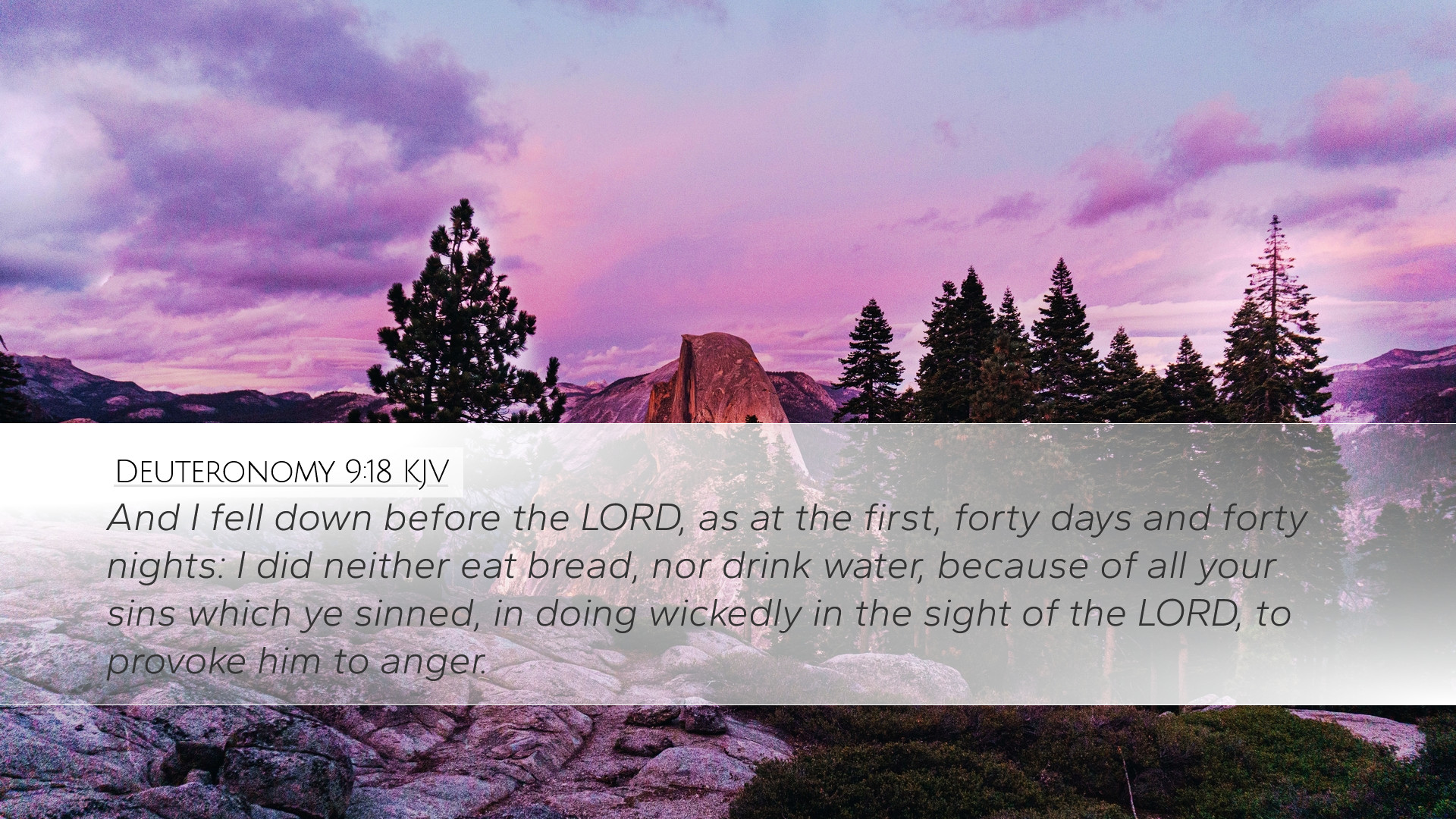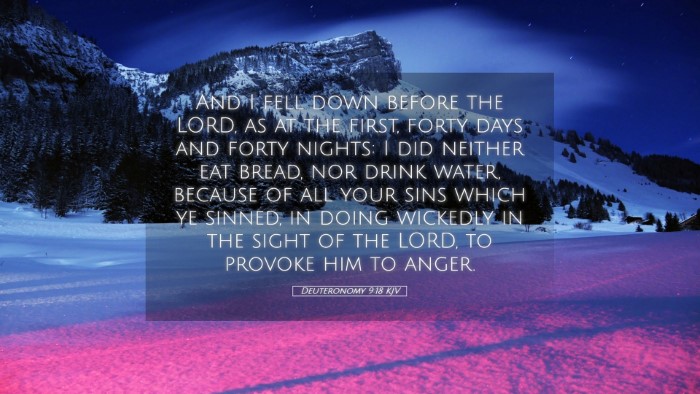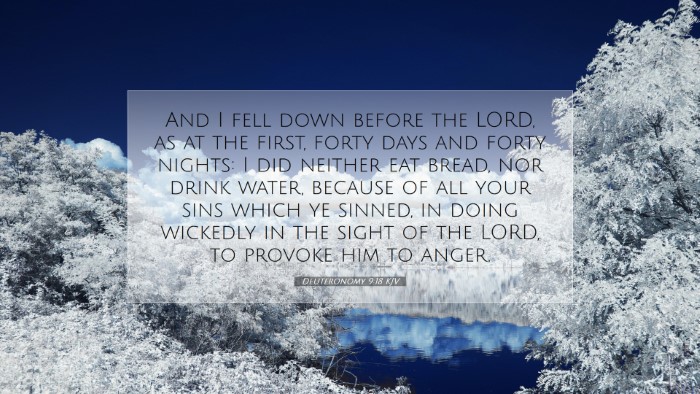Commentary on Deuteronomy 9:18
Verse Context: Deuteronomy 9:18 states, “And I fell down before the LORD, as at the first, forty days and forty nights: I did neither eat bread nor drink water, because of all your sins which ye sinned, in doing wickedly in the sight of the LORD to provoke him to anger.” This passage occurs in a critical juncture of Israel's history, as Moses reflects on the people's rebellion and the seriousness of their covenantal relationship with God.
Matthew Henry's Commentary
Matthew Henry emphasizes the profound sense of intercession exhibited by Moses. He notes that Moses aligns his physical fasting with the spiritual gravity of the situation. His forty-day fast signifies complete devotion and earnestness before God, mirroring his previous intercessory actions after the golden calf incident.
- The Seriousness of Sin: Henry points out that Moses highlights the people's sins, which signify not only a transgression of moral law but also a deep affront to God’s holiness.
- Intercession: This act of fasting symbolizes a genuine plea for mercy on behalf of the Israelites, indicating that true leaders bear the burdens of their people.
- God’s Anger: The mention of God’s anger signifies the dire consequences of collective sin, fulfilling divine justice, and displaying His holiness.
Albert Barnes' Notes
Albert Barnes provides insights into the historical aspect of the passage, focusing on Moses's leadership during a tumultuous time. He notes the significance of the forty-day period as a time of preparation for Moses to receive the next set of tablets from God.
- Fasting and Prayer: Barnes relates the action of fasting not merely to abstention from food and drink, but as a spiritual discipline aimed at deepening one's relationship with God during times of crisis.
- Reprobation of Sin: He underscores the idea that the sinfulness of the Israelites provoked God’s anger, showcasing how sin disrupts the covenant relationship and necessitates repentance.
- Moses as Mediator: Barnes accentuates Moses's role as a mediator between God and Israel, which is a foreshadowing of Christ’s ultimate mediation for humanity.
Adam Clarke's Commentary
Adam Clarke provides a theological reflection on the significance of Moses's actions and the implications for the Israelite community. He interprets the fast as not just an emotional response but a necessary step towards restoration.
- Symbol of Repentance: Clarke remarks that Moses’s fasting and petition reflect a deep desire for the people's repentance and God's forgiveness, laying a foundation for understanding repentance as a process of turning back to God.
- Historical and Theological Context: He emphasizes that the events surrounding the sin of the golden calf highlight the recurring themes of human sin and divine mercy throughout the biblical narrative.
- The Nature of Idolatry: The rebuke of idol worship is significant in Clarke's commentary, indicating that the people's actions stemmed from a lack of understanding of God's greatness and their covenant responsibilities.
Theological Implications
Analyzing Deuteronomy 9:18 reveals several pertinent theological implications relevant for pastors, students, theologians, and scholars today:
- Covenantal Faithfulness: The nature of Israel's covenant with God stresses the importance of faithfulness and the grave consequences of turning away from divine commands.
- Intercessory Prayer: The passage highlights the power and necessity of intercessory prayer, encouraging believers to advocate for one another amid collective sins and societal breakdown.
- Spiritual Disciplines: Moses's fasting exemplifies a model of spiritual discipline that believers can practice to seek divine guidance and forgiveness.
- Understanding Sin’s Impact: The acknowledgment of sin’s serious nature serves as a reminder of the need for repentance and the hope therein—inviting restoration and renewal through sincere humility.
Conclusion
Deuteronomy 9:18 encapsulates the essence of a leader’s responsibility to seek God’s mercy on behalf of a wayward community. Through the combined insights from Matthew Henry, Albert Barnes, and Adam Clarke, we can discern the depth of Moses's commitment to God and Israel—and this narrative remains instructive for contemporary faith communities. The call to intercede, the acknowledgment of sin, and the practice of spiritual disciplines are vital tenets essential for nurturing a vibrant covenantal relationship with God.


